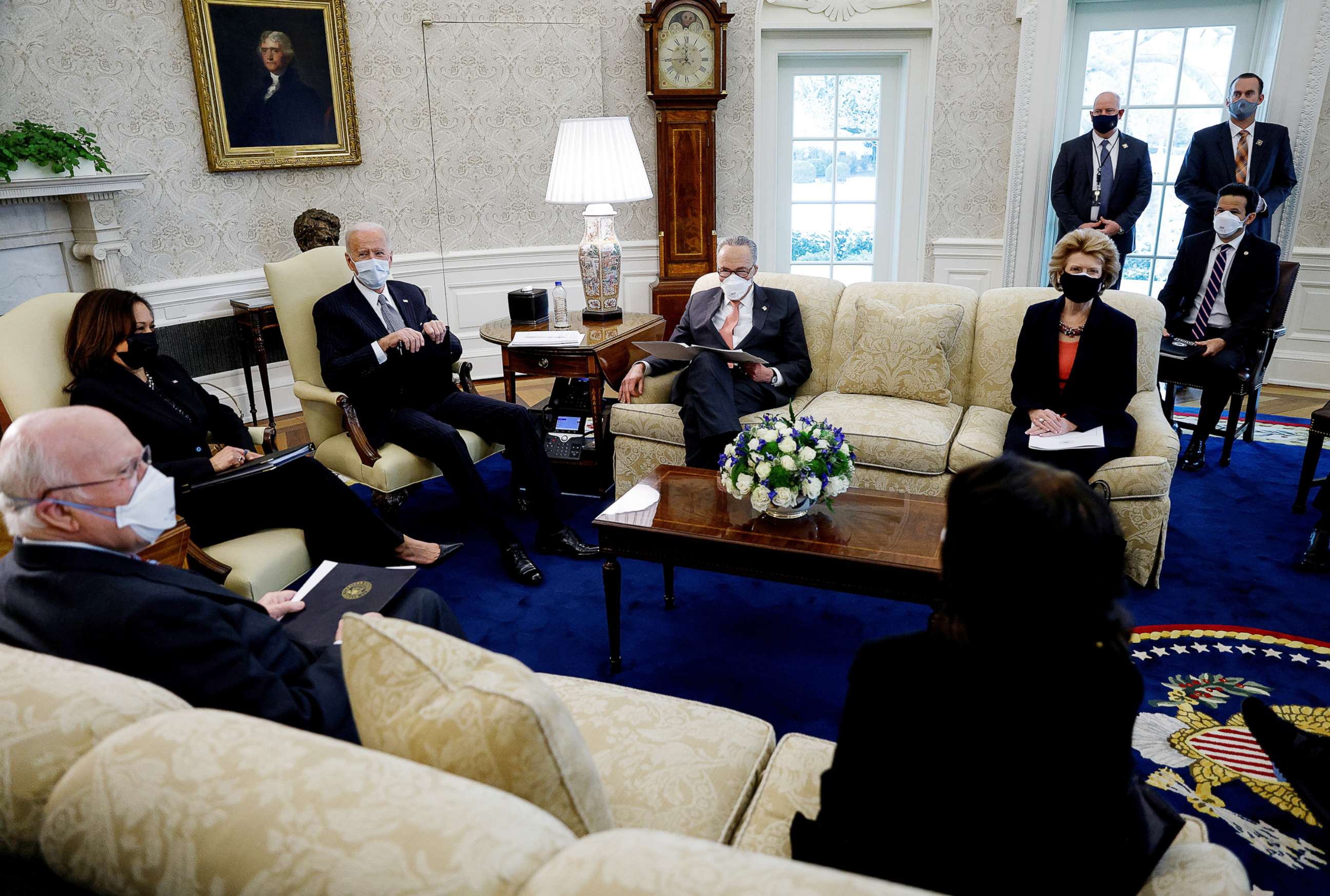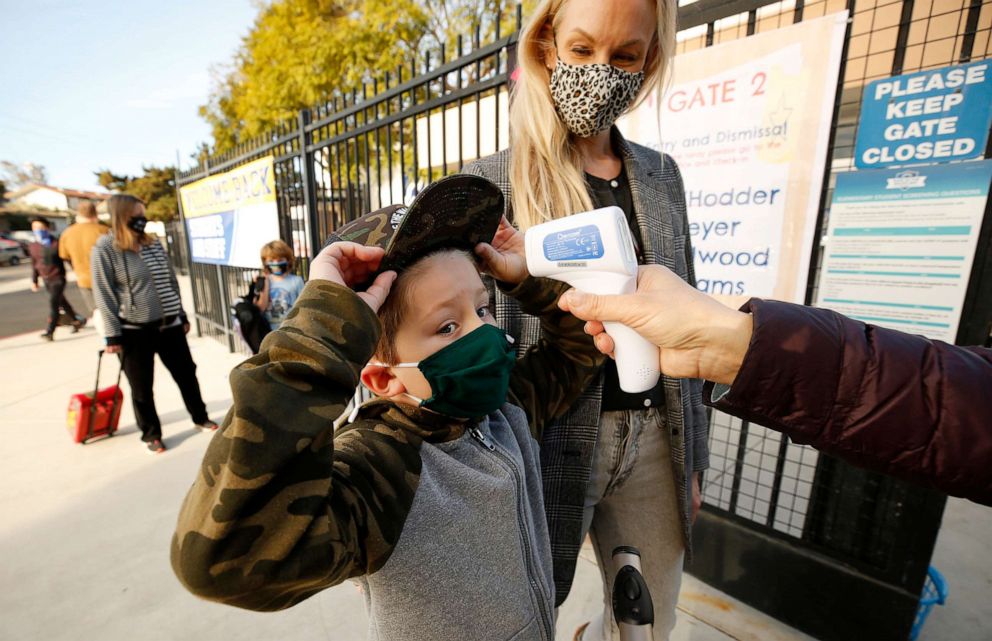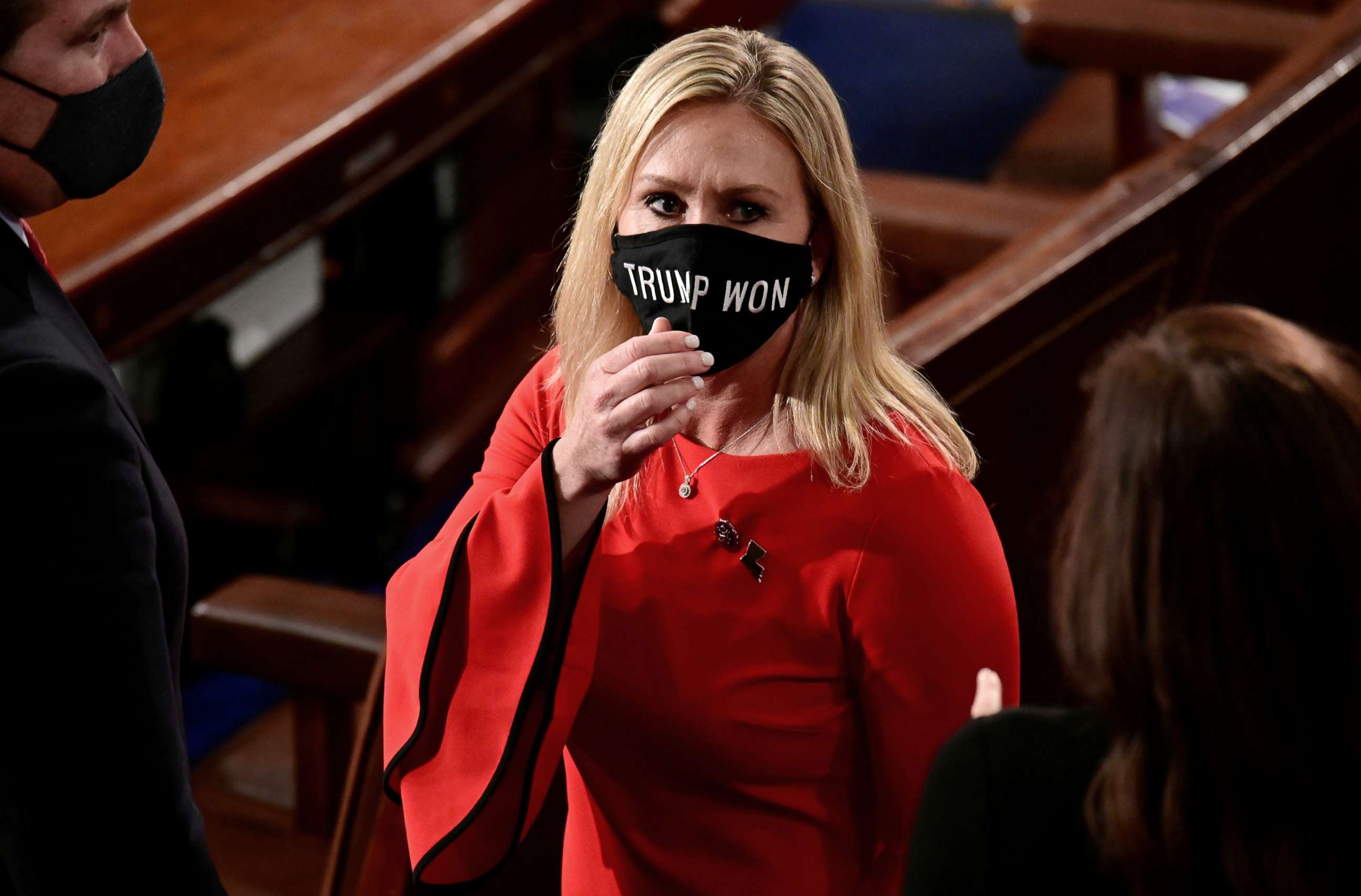Biden makes slow but steady progress on COVID relief: The Note
The White House has managed to stay in the center of COVID relief negotiations.
The TAKE with Rick Klein
It's easy enough to overlook in a Capitol consumed by impeachment preparations, Senate organizational wrangling and the future of one new Republican member of Congress in particular.
Those are important storylines. So is the slow but unmistakable progress President Joe Biden has been making in COVID-19 relief, with both partisan and bipartisan tracks still available to him.
The White House has managed to stay in the center of negotiations, despite forces in both parties that have an interest in pulling talks to the Capitol.

Democrats have stayed sufficiently united to put in place a budget process that won't need many or even any Republicans. Biden, meanwhile, has placed items like means-testing stimulus payments and the level of state and local aid up for discussion with willing Republicans.
Not coincidentally, Biden's plans for the coronavirus response remain broadly popular. A Quinnipiac poll out Wednesday showed 68% support for the president's $1.9 trillion package, to go along with Biden's 61% approval rating on handling the pandemic.
For all the political messiness, it remains remarkable how often the Biden team has managed to keep to its messaging over the first two weeks of the administration. But it's worth remembering how much practice they developed in tuning out Trump-driven noise.
The RUNDOWN with Alisa Wiersema
The political challenge facing the Biden administration in its goal to safely reopen most of the nation's schools in the coming months appears to be coming to a head in one of the most heavily Democratic leaning areas of the country.
On Wednesday, the city of San Francisco sued its own school district in hopes of reopening in-person classes. Meanwhile, the Southern California Chapter of the American Academy of Pediatrics called on "state and local leaders to work quickly and definitively to open schools."
"Schools should reopen immediately. We are causing undue harm to millions of children by keeping schools closed for this long," Dr. Alice Kuo, an executive board member of the organization said in a statement.

In December, California Gov. Gavin Newsom, a Democrat, introduced a whopping $2 billion plan to help elementary schools reopen. On Wednesday, Newsom again emphasized his belief that schools could reopen with proper safety precautions in place. Still, tensions exist between Newsom's policy push and concerns from teachers' unions about maintaining safety for instructors who have not yet been vaccinated.
At least one poll indicates wide support for Newsom's $2 billion plan. According to a recent survey by the Public Policy Institute of California, "two in three Californians and likely voters support this plan" and despite an existing partisan divide, majorities of Democrats, Republicans and Independents across the state and its various demographic groups also indicated favoring the plan.
The TIP with Kendall Karson
Reps. Liz Cheney and Marjorie Taylor Greene may fall on opposite ends of the GOP spectrum, but they have one thing in common: they sit at the center of the party's philosophical divide post-Trump.
Cheney's vote to impeach former President Donald Trump incensed the caucus, but it's Greene's history of incendiary comments, ranging from endorsing violence against Democrats, spreading false claims about school shootings, and espousing QAnon conspiracy theories, that could further splinter the party. On Thursday, the full House will vote on whether to strip Greene of her committee assignments, a punitive measure that some Republicans are labeling as a "partisan power grab" while others in the party could side with Democrats to hold a publicly unrelenting Greene accountable for her extremist rhetoric.

And after a bruising 2020 campaign -- in which the Republicans narrowed Democrats' majority significantly by defining them as the party of "defund the police" -- Democrats are now testing a similar approach. Seeking to tether the GOP to Greene and QAnon, House Democrats' campaign arm rolled out their first ads of the 2022 cycle this week accusing seven vulnerable Republicans in Biden-won districts of standing "with Q."
As Democrats capitalize on the fractures among their rivals, the faltering over how to deal with Greene -- who received a standing ovation from half the Republicans in the room during Wednesday's conference meeting -- raises more questions for the GOP's leaders about how they will more broadly handle Trump. Meanwhile, a second vote on the No. 3 position in leadership -- called by Cheney herself -- settled one internal scuffle as she was reconfirmed as conference chair by an overwhelming vote of 145-61 and brought some clarity about the party's direction, for now.
THE PLAYLIST
ABC News' "Start Here" podcast. Thursday morning's episode features the Lincoln Project's Reed Galen with a diagnosis of the GOP as House Republicans defend Rep. Marjorie Taylor Greene, R-Ga. Then, ABC News Senior Washington Reporter Devin Dwyer has an in-depth look at the challenges the Biden administration will face with its immigration policy. And, ABC News' Anne Flaherty talks about why health officials have been cautious about AstraZeneca's data.http://apple.co/2HPocUL
ABC News' "Powerhouse Politics" podcast. The Biden administration has a "mandate" to pass COVID-19 relief, including sending direct checks, reopening schools and getting people vaccinated, and that is why they have to "go big," White House principal deputy press secretary Karine Jean-Pierre told ABC News Chief Washington Correspondent Jonathan Karl. "We have to -- and this is what the president believes -- we have to deliver for the American people. And that's meeting the moment, right? ... We have to go big because this is a crisis that is like no other. We have to -- to meet people where they are." https://bit.ly/3oMKdUP
WHAT YOU NEED TO KNOW TODAY
Download the ABC News app and select "The Note" as an item of interest to receive the day's sharpest political analysis.
The Note is a daily ABC News feature that highlights the key political moments of the day ahead. Please check back tomorrow for the latest.





